Micro and small enterprises (with 2-49 workers) and own-account workers – which together form small economic units – comprise the vast majority of employment in many countries. The share is over 90 per cent of all workers in most countries in Eastern, Central and Western Africa, and South Asia and more than 80 per cent in most countries in Southeast Asia, Central and Western Asia, and the Arab States. In Latin America and the Caribbean, small economic units represent from 52 per cent of employment in Chile to over 90 per cent in Bolivia and Honduras. But even in Europe and other high-income economies, they account for more than half of total employment. This widespread prevalence across the world highlights the significant job opportunities generated by small economic units across nearly all economic sectors.
The invaluable contribution of own account workers and micro and small enterprises to employment generation has long been recognized. It is also known that small economic units face numerous challenges to their growth and sustainability. These include limited access to finance, capital, markets, digital infrastructure, skills enhancement and government support and other key enablers. Many of the challenges are context specific, related to the economic sectors in which they operate, and to their often-informal status in many countries. Due to all these factors, small economic units are highly vulnerable to economic crises – as was shown during the COVID-19 pandemic – natural disasters, and other disruptions. In a rapidly changing world of work, and in the context of a just transition, supporting small economic units through key policy measures is more critical than ever, to ensure their resilience and continued role in generating incomes and livelihoods for the great majority of the world’s population.
Small economic units at the forefront of structural transformation
For most developing countries, structural transformation essentially implies supporting the productive transformation of small economic units. Their employment has generally declined over time in the agricultural sector, and increased in industry and services, albeit at varying rates and to different extents. These trends reflect and contribute to the ongoing process of structural transformation occurring in many regions of the world. In most countries with available data, where reliable trends can be drawn for a period spanning at least 5 years between 2008 and 2022, agricultural employment has declined over time. However, in the seven countries where this was not the case, small economic units accounted for more than 70 per cent of agricultural employment growth in five countries and for 42 per cent of this growth in Costa Rica. Their employment in agriculture declined in only one country (Australia) where overall employment in the sector grew.
Employment in small economic units still predominates as a share of agricultural employment, – including in crop and animal production, hunting and related service activities; forestry and logging; fishing and aquaculture – regardless of region and level of development. In most countries in the Arab States and Africa, with the exception of Southern Africa where large-scale agriculture is prominent, small economic units account for over 95 per cent of agricultural employment. Similarly, in most countries in Asia and the Pacific and in many countries in Latin America and the Caribbean, they represent over 90 per cent of employment in agriculture and more than 80 per cent in Central and Western Asia. These statistics underscore the vital role played by small economic units in sustaining and driving agricultural activities across diverse regions.
Employment in small economic units also accounts for the lion’s share of employment in retail and wholesale trade, construction of buildings, specialized construction activities, and land transport in low- and middle-income countries, and large shares in many high-income countries as well. In low, lower-middle, and upper-middle-income countries, small economic units also account for high shares of employment in labour-intensive manufacturing industries, including in the manufacturing of fabricated metal products, furniture, food products, and wearing apparel.
In fact, small economic units have been a major contributor to employment growth in industry and services in many developing countries and regions. For instance, in Latin America and the Caribbean over periods spanning at least 5 years between 2008 and 2022, small economic units played a substantial role in industrial employment creation, ranging from 50 per cent of net job growth in Chile to nearly 100 per cent in Argentina, Brazil, and Guatemala. The contribution of small economic units to employment growth in services surpassed 80 per cent in Brazil, Mexico, Peru, and Guatemala, and over 50 per cent in many other countries of the region. However, the high prevalence of informality in small economic units affects working conditions, limits access to social protection, and therefore dampens their contribution to decent work outcomes.
Small economic units in support of a just transition
By examining the employment of small economic units at a more detailed industry level, clusters of industries have emerged, revealing specific sectors where targeted policies and initiatives hold the potential to support their contributions to a just transition and decent work outcomes. A first cluster of industries is engineering and construction, including construction of buildings and specialized construction activities, but also civil engineering and architectural and engineering activities; technical testing and analysis. These industries have high shares and growth rates of employment of small economic units, particularly in lower-middle and upper-middle-income countries. Similarly, industries related to energy supply and waste management have seen rapid growth in some countries. For instance, employment of small economic units in the electricity, gas, steam and air conditioning supply industry, increased very rapidly in Mexico (more than doubling between 2010 and 2022), as well as in Ecuador and Turkey, with an average annual growth rate of 12 per cent between 2015-2022 and 2009-2021 respectively.
In these industries and many others, there is a large scope for support to small economic units in their pursuit of a just transition. This support can be achieved not only through industrial and sectoral policies, but also through skills development and other measures aimed at improving the low levels of productivity commonly associated with small economic units, and by addressing challenges through social dialogue processes. More generally, countries should seek to establish regulatory and non-regulatory frameworks that support environmental and social sustainability while promoting innovation, and to ensure that such frameworks target small economic units and provide them guidance and support to make their operations more resource efficient and environmentally responsible.
Another cluster where support for small economic units provides significant opportunities for contributing to a just transition is in labour-intensive manufacturing industries. The level of integration of industries in global and regional value chains is highly related with industry and firm structures at the national level. For instance, in garments exporting countries in Southeast Asia (Cambodia, Viet Nam, Myanmar) and in South Asia (Bangladesh) and Africa (Lesotho), the share of workers employed in micro and small enterprises is far lower than in other countries, and lower than other labour-intensive manufacturing industries in the same country. For instance, in 2017, small economic units accounted for only 7 per cent of employment in the garments manufacturing (wearing apparel) industry in Bangladesh, compared to 85 per cent of employment in the manufacturing of food products.
Similarly, in many countries in Latin America, while integration in global food value chains is higher (e.g. Brazil, Ecuador, Costa Rica), the share of employment of small economic units in food manufacturing is relatively limited. This is not to say that MSEs are less important in these industries, but rather that different policies and interventions would be needed in this context. Indeed, in many countries, employment growth in large exporting firms has been accompanied by employment growth in small economic units in the same sector. This suggests that there can be a pull-effect in employment creation, and a spill-over effect from value chain integration and increased productivity, if adequate policies and market conditions are in place. For instance, in these industries, there can be important gains from supporting their transition to formality and helping them access finance and markets.
Small economic units in services: enabling business, creating decent jobs
Another cluster of industries which must be highlighted for its potential of creating decent work and where the employment of small economic units is growing rapidly around the world is related to information and communication technologies (ICT) and business facilitation services. This cluster includes computer programming, consultancy, and related activities, particularly in upper-middle and high-income countries, no doubt facilitated by greater digital connectivity. In many lower-middle and upper-middle-income countries, their growth has been very rapid in legal and accounting activities; office administrative, office support and other business support activities; activities auxiliary to financial service and insurance; advertising and market research; and other professional, scientific, and technical activities. Support for small economic units in these industries, including through improving digital infrastructure and bridging digital divides and digital adoption gaps, and through investment in education and skills development systems, is key to raising productivity and unlocking far more decent work opportunities in many countries.
Given the significant heterogeneity of economic and industry structures around the world, these findings suggest that multiple pathways exist to support small economic units in generating decent work. Multistakeholder initiatives aligned with the ILO Guidelines for a Just Transition towards Environmentally Sustainable Economies and Societies for All can play a crucial role in this endeavour. Region-specific (see for example the ASEAN Strategic Action Plan for SME Development 2016-2025) and even country-specific strategies already exist, addressing challenges to the productivity and resilience of small economic units in a comprehensive manner. While such holistic approaches are ideal, the findings highlighted above suggest that countries may find entryways or develop specific strategies depending on their own context, challenges, and priorities. But one thing is for sure: the time to support small economic units is now!
Author
-

Souleima El Achkar
Souleima is an economist and labour market information specialist, with expertise in skills development systems. Since 2010, she has been working as a consultant on various projects for the ILO, Asian Development Bank and the World Bank.
View all posts
